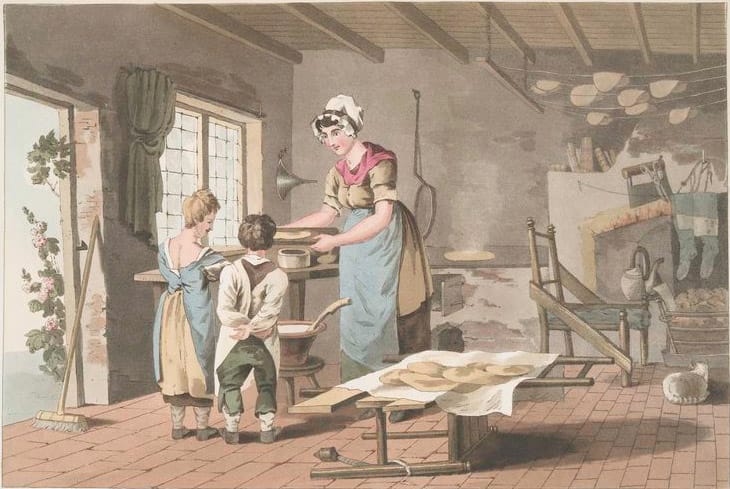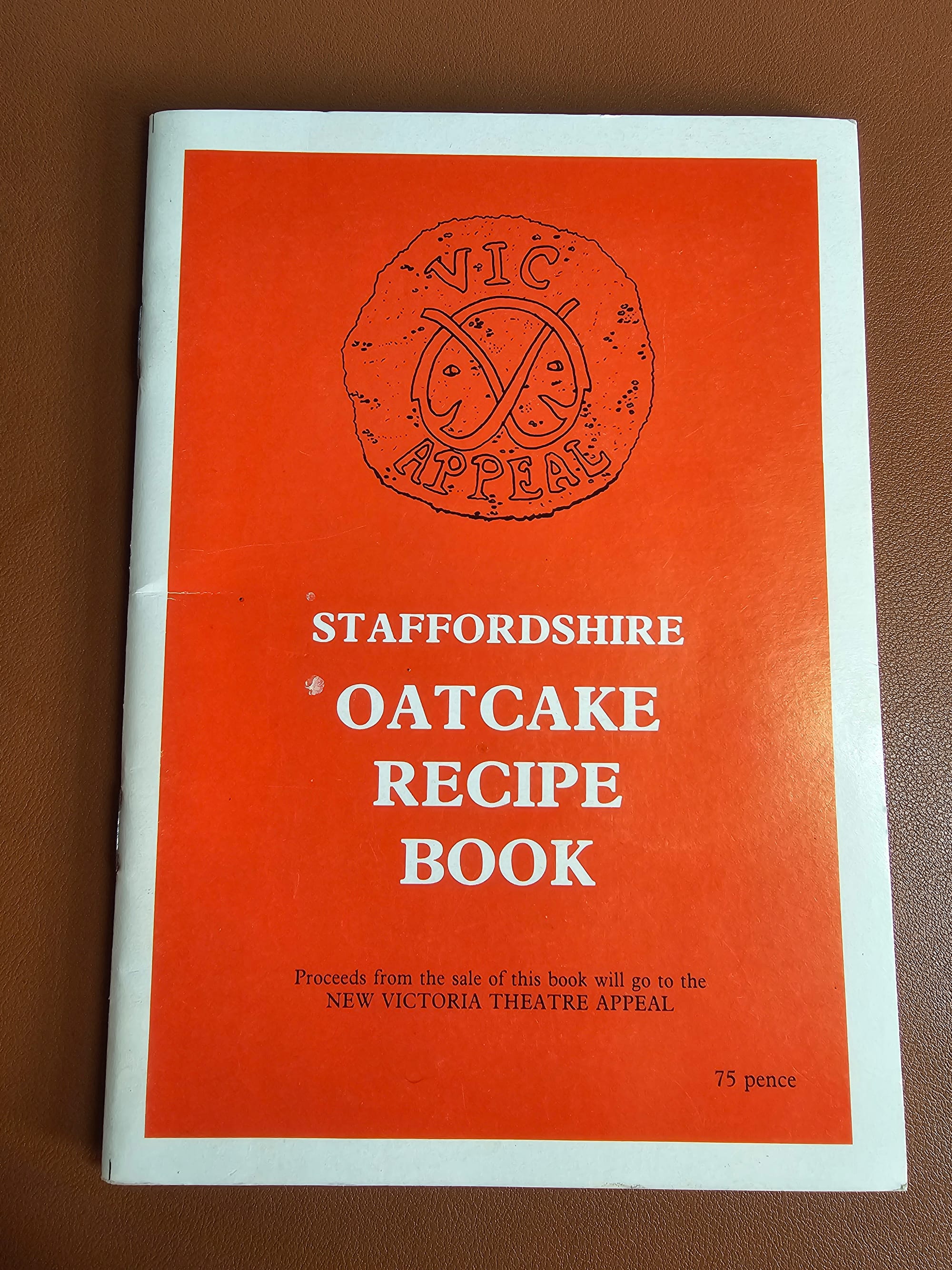Happy Oatcake Day, fellow history buffs and food lovers! As a local historian and book nerd in Stoke-on-Trent, I'm constantly on the hunt for unique books that tell the story of our area. Today, I'm thrilled to share a very special discovery from my collection: the Staffordshire Oatcake Recipe Book. This isn't just a book of recipes; it's a piece of our local history, and it was created for a wonderful cause.
Published in 1984, the book was written by Eleanor Fishman, with illustrations by Myrna Richmond and design by Brian Rawlins. It was created to raise funds for the New Victoria Theatre Appeal, and it sold for 75 pence. The theatre's director at the time, Peter Cheeseman, wrote the foreword, explaining that the book was a way to celebrate the life and history of North Staffordshire, which was, and still is, a vital part of the theatre’s work. The book takes the oatcake "seriously," offering a collection of recipes inspired by the theatre's oatcake competitions. The proceeds from the sale of this book went directly to the New Victoria Theatre Appeal.
The book is a treasure trove of oatcake history and innovative recipes. Did you know that the Staffordshire oatcake is described as a pancake made from fine oatmeal, wheat flour, yeast, water, and milk? It’s a regional delicacy, and while oatcakes are a little-known food outside of North Staffordshire and parts of Derbyshire, they've been a favourite here for a very long time. Over the years, the size of oatcakes has decreased, but the basic ingredients remain the same.
The Staffordshire oatcake has a long and interesting history. The earliest record of this local delicacy dates back to 1776, when James Boswell accompanied Dr. Johnson on a visit to Lichfield. Boswell, a native of Scotland, noted that the Staffordshire oatcakes he was served were soft, unlike the hard oatcakes of his homeland. He found it amusing that a food given to horses in England was a staple for the people in Dr. Johnson's hometown.
The oatcake transitioned from a homemade rural staple, cooked on a bakestone over a fire, to a commercially produced urban product. For most of the 19th century, there were no written accounts of the oatcake as a rural or urban food. However, by the late 19th century, oatcake-making was well established in the "Six Towns" and surrounding villages. It was often a cottage industry, with elderly widows making dozens of oatcakes daily on an iron bakestone to earn a living.

As the 20th century progressed and the oatcake trade flourished, men took over as the primary bakers and sellers.
Philip Oakes's autobiography, From Middle England, describes a typical oatcake shop from the 1930s, where he would watch a baker measure ingredients and pour the batter onto a sizzling bakestone. Today, while there are fewer small oatcake shops, they still exist and are popular. Each baker has their unique recipe, with slight variations and a carefully guarded "secret ingredient," which is often passed down to the next generation.
Inside this book, Eleanor Fishman explores the incredible versatility of the oatcake. The recipes range from traditional rolled and folded oatcakes, like Cheese and Bacon, to more inventive "Oatcake Layers" that resemble dishes like lasagna and chop suey. There are even sweet oatcake puddings, featuring fruit combinations like Blackberry and Apple or Rhubarb and Strawberry. The author notes that the recipes draw on inspiration from various parts of the world, including Italian and Mexican flavours. The book is a testament to the oatcake's adaptability and its place in both traditional and modern cooking.
Because this book is so rare and full of such weird and wonderful recipes, I am making a digital copy available for you to download. You'll find a wide variety of fillings, from Savoury Banana and Bacon Rolls to Curried Vegetable Medley, and even a recipe for a "Double-Decker Potteries Pizza". It’s a fascinating look at how a simple local staple can be transformed in countless ways.
And for those who are interested, the book also provides a recipe for making oatcakes at home, a recipe kindly provided by the Evening Sentinel. The book’s author, Peter Cheeseman, even includes a solemn warning from Arthur Berry about the dangers of over-indulgence, saying that it "leads to BULGENCE!".
I hope you enjoy this rare glimpse into our local culinary and cultural history. Happy Oatcake Day!
